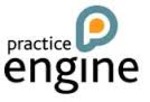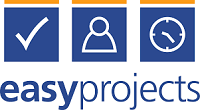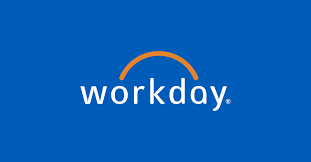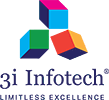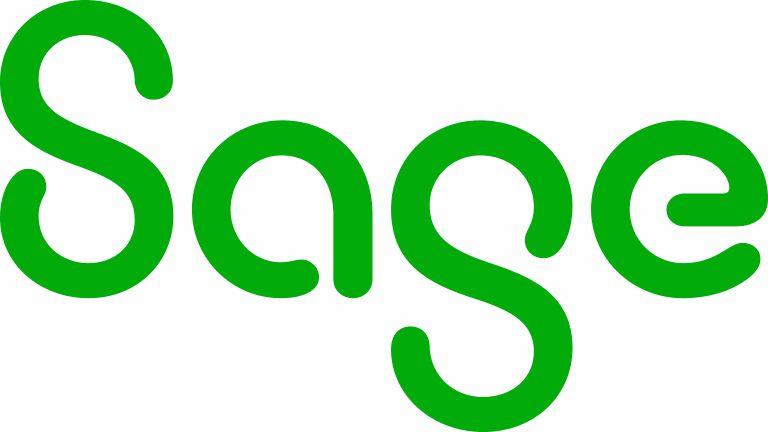Yes, most Professional Service Automation (PSA) software may be used on numerous devices and platforms. These systems are often cloud-based, and users can access them using web browsers on desktop computers, laptops, tablets, and smartphones. Some PSAs offer native mobile apps for iOS and Android smartphones. This allows teams to access information and manage projects while on the go, improving communication and cooperation across several platforms and devices.
List of 20 Best Professional Service Automation Software
EA Empower by sa.global is a suite of solutions that seamlessly integrates into any work environment. Our customizable apps are tailored to the unique preferences and requirements of your users, streamlining their tasks and increasing efficiency. Wit...Read More empower by sa.global
Practice Engine is a dependable and trustworthy software that excels in various applications. Through its powerful features and smooth integration, this solution provides reliable and efficient performance for individuals in various fields. Rely on P...Read More Practice Engine
Easy Projects is an exceptional collaborative work management software preferred by both on-site and remote teams for delivering concrete business outcomes. Our platform aids in reducing project duration by an average of 30% and boosts overall produc...Read More Easy Projects
Workday Adaptive Planning is a enterprise performance management solution that empowers businesses to efficiently forecast, budget, and strategize for the future. It utilizes cutting-edge technologies like AI and machine learning to enhance flexibili...Read More Workday Adaptive Planning
Quantis - Asset and Wealth Management is a treasury solution for asset managers, insurers, and pension fund managers. This innovative software streamlines investment management operations with customizable compliance rules and advanced workflow capab...Read More Quantis - Asset and Wealth Management
QARA Test is a quality assurance solution for efficient and reliable testing. Our advanced automation technology reduces testing time by 70% and effort by 60%, freeing up valuable resources for other tasks. QARA Tests agile environment allows for ear...Read More QARA Test
Ruum is a Project Management Software designed to provide a personalized experience. With Ruum, coordinating and collaborating on projects has never been easier. From beginning to end, this powerful platform helps streamline your project management p...Read More Ruum App
Planview, strategic management software designed to streamline the entire planning and execution process. With advanced features for tracking KPIs, managing projects, and monitoring progress, Cascade Strategy guarantees flawless execution of strategi...Read More Planview
Continuum PSA, project delivery software that integrates CRM, project management, resource management, and business intelligence into one seamless solution. Enjoy streamlined processes, reduced costs by 15%, and increased margins by 10% for improved...Read More Continuum PSA
BigTime solution for automating your professional services. Say goodbye to manual processes with features such as time and expense tracking, billing, and invoicing. With seamless integration with QuickBooks Online and Desktop, data management is secu...Read More BigTime
Resource Guru solution for simplifying team scheduling and task management. Our user-friendly platform allows you to effortlessly track and allocate your teams availability, equipment, and meeting rooms. Make data-driven decisions with insightful rep...Read More Resource Guru
Sampada RTO - a specialized software solution created for RTO Agents to simplify their registration procedures. This user-friendly software automates activities and streamlines processes, increasing efficiency and convenience. Say farewell to manual...Read More Sampada RTO
AlphaVoice is a software that revolutionizes podcasts and YouTube channels by transforming them into interactive AI experiences. Engage your audience in a whole new level and provide content creators with platform to expand their reach. With seamless...Read More AlphaVoice
Deltek Vantagepoint is the premier project management solution for architecture and engineering firms. Say farewell to inefficiencies and welcome streamlined operations, enhanced collaboration, and heightened productivity with Vantagepoint. This high...Read More Deltek Vantagepoint
GreatSoft CRM solution for company secretaries to simplify data management and sharing. With its customizable services and seamless integration across multiple platforms, this software streamlines data processes and eliminates all hassles. Experience...Read More GreatSoft CRM
OP Auto Clicker, the top-notch solution for automating mouse clicks. This powerful tool offers two modes, dynamic cursor positioning and preset spot clicking, giving you complete command over your clicking operations. With customizable hotkeys, saved...Read More OP Auto Clicker
ConnectWise is a desk management tool that delivers a robust ticketing system to enhance your customer support. Trusted by industry experts, this software optimizes processes within your company for increased productivity. With its extensive capabili...Read More ConnectWise
TeamWorks is a cloud-based help desk solution specifically designed for the needs of small and medium-sized businesses. With its user-friendly interface and features such as automated payroll management and biometric time tracking, TeamWorks streamli...Read More Teamwork
Sage Intacct is a financial management software aimed at small and mid-sized businesses. It is a cloud-based solution that efficiently streamlines crucial finance and accounting tasks while providing up-to-date financial information for confident dec...Read More Sage Intacct
Autotask PSA is a leading professional services automation solution designed specifically for IT service providers. With its intuitive platform, it streamlines project management, service desk management, and billing processes, bringing greater effic...Read More Autotask PSA
Learn More About Professional Service Automation Software
- What Is Professional Service Automation Software?
- What Are The Recent Trends In Professional Service Automation Software?
- Benefits Of Using Professional Service Automation Software
- Important Factors To Consider While Purchasing Professional Service Automation Software?
- What Are The Key Features To Look For In Professional Service Automation Software?
- Why Do Businesses Need Professional Service Automation Software?
- How Much Time Is Required To Implement Professional Service Automation Software?
- What Is The Level Of Customization Available In Professional Service Automation Software?
- Which Industries Can Benefit The Most From Professional Service Automation Software?
- Conclusion
What Is Professional Service Automation Software?
Professional Service Automation Software, or PSA software, is a comprehensive solution for service-based enterprises to handle many areas of their operations, such as project management, time tracking, resource allocation, invoicing, and reporting. It streamlines and automates these essential processes, giving organizations a unified platform to manage projects and customer engagements more efficiently.
One of the primary advantages of PSA software is that it enables businesses to track and manage projects in real time, giving them important insights into project progress, resource utilization, and profitability. This allows teams to make data-driven decisions and optimize operations to achieve optimum productivity. In addition to project management, PSA software contains features like time monitoring, which allows firms to correctly track staff hours and billable time.
This allows organizations to ensure fair remuneration and customer billing while also identifying areas for improvement and reducing wasted hours. Another important feature of PSA software is resource management, which guarantees that firms assign the proper individuals with the relevant expertise to each project. This reduces overbooking or underutilization of resources, resulting in better project outcomes and client satisfaction.
Furthermore, PSA software has invoicing and billing capabilities, which make it easier for firms to send accurate and timely invoices to clients. These solutions can also be integrated with accounting software to improve financial operations and reduce manual errors.
What Are The Recent Trends In Professional Service Automation Software?
In recent years, Professional Service Automation (PSA) software has grown in popularity. This is due to the increased demand for automation and process simplification in the professional services business. However, with so many PSA software alternatives available, buyers must stay up to date on the current developments in order to make informed purchasing selections.
Let's explore, we'll go over some of the latest trends in professional service automation software to help you choose the best option for your company.
1. Cloud-Based Solutions Are Gaining Momentum: One of the most significant trends in professional service automation software is the transition to cloud-based solutions. This enables organizations to access software from anywhere and at any time, without the need for expensive gear or specialized IT assistance. Cloud-based PSA software is also scalable, allowing firms to easily add or remove users as needed. This trend is projected to continue as more organizations adopt remote work and virtual collaboration.
2. Integration With Other Business Systems: Another trend in PSA software is integration with other corporate systems including CRM, ERP, and project management software. This permits data to flow seamlessly between systems, minimizing the need for human data entry and reducing the likelihood of errors. Integration also provides a comprehensive perspective of the business, allowing for better decision-making and increased productivity.
3. Mobile Functionality Is Becoming: A Must With the growing significance of mobile devices in the workplace, it is critical for PSA software to be mobile compatible. This enables employees to use the software from their smartphones or tablets, making it easier to manage their time, assignments, and projects while on the go. Mobile functionality also allows for more effective team communication and cooperation, resulting in improved project management and delivery.
4. AI And Automation Are Revolutionizing: PSA Artificial intelligence (AI) and automation are altering how professional service firms function. PSA software, which includes AI-powered capabilities such as chatbots, predictive analytics, and automated invoicing, can streamline procedures and eliminate the need for human workers. This trend is predicted to continue as AI technology improves and becomes more affordable to businesses of all sizes.
5. Emphasis On User Experience: User experience is an important factor in the creation of PSA software. With increased market competitiveness, software businesses are focusing on developing user-friendly, intuitive interfaces that require less training. This trend benefits businesses by saving time, reducing user errors, and increasing adoption rates.
Benefits Of Using Professional Service Automation Software
Professional Service Automation (PSA) software is an effective tool for streamlining and automating various activities within a professional services firm. It includes a number of features and benefits that can boost efficiency, production, and customer happiness.
Let's explore, we'll go over the primary advantages of using PSA software so you can make an informed selection.
1. Centralized Project Management: One of the key advantages of adopting PSA software is the ability to consolidate all project-related data and information into a single location. This eliminates the need for various tools and spreadsheets, making it easier for teams to interact and keep track of project updates.
2. Streamlined Time And Resource Management: PSA software allows professionals to correctly track time spent on each project and efficiently manage resources. It also creates real-time information, allowing managers to make data-driven choices and assure on-time project completion.
3. Improved Resource Allocation: PSA software allows firms to better manage their resources by assigning employees to projects based on their talents, availability, and workload. This guarantees that the correct personnel are working on the right projects, resulting in higher project quality and customer satisfaction.
4. Improved Financial Management: PSA software has strong financial management skills that enable firms to precisely track project budgets, expenses, and income. It also allows professionals to prepare and submit correct invoices, removing the need for manual data entry and lowering mistake rates.
5. Improved Collaboration And Communication: PSA software promotes team collaboration and communication by offering a single platform for project discussions, file sharing, and real-time updates. This decreases the likelihood of miscommunication and fosters a more unified work atmosphere.
6. Improved Client Relationship Management: Another significant advantage of PSA software is its ability to handle client interactions effectively. It keeps all client information, such as contact information, project history, and communication, allowing professionals to provide clients with a more personalized and pleasant experience.
7. Scalability And Flexibility: PSA software is built to meet the needs of developing enterprises. As your firm grows, the software can accommodate more projects, clients, and staff, making it a scalable and adaptable solution.
Important Factors To Consider While Purchasing Professional Service Automation Software?
When looking to purchase professional service automation software, there are numerous critical elements to examine to ensure that the program matches your company's specific requirements. These aspects influence not just the overall functionality and effectiveness of the program, but also the return on investment for your firm.
Lte's explore, we'll go over the most important considerations when choosing professional service automation software for your organization.
1. Industry-Specific Capabilities: The first and most important element to consider is if the program includes capabilities that address your specific industry needs. Professional service automation software should be capable of streamlining and automating procedures and workflows connected to the services your company provides. For example, if you work in the IT services industry, you would search for capabilities like project management, resource allocation, and time tracking. Similarly, for a consulting firm, capabilities like as client management, invoicing, and financial reporting are critical.
2. Scalability And Customization: As your organization expands, so will your demand for expert service automation software. It is critical to select software that is scalable and can expand with your business. Furthermore, the flexibility to tailor the software to meet your specific company processes can significantly improve your operations. Look for software that provides versatile customization possibilities and can adapt to future changes in your business needs.
3. Integration Capabilities: Another important element to evaluate is how well the software integrates with your existing systems. Professional service automation software is frequently used alongside other tools, such as customer relationship management (CRM) or accounting software. To eliminate data silos and improve cross-departmental communication, consider software that integrates effortlessly with these tools.
4. User-Friendly Interface: The software's simplicity of use is an important feature to consider, since it has a direct impact on user adoption and efficiency. A user-friendly interface with simple navigation and a clear structure can help to save time and resources when training new personnel. Furthermore, it is critical to determine whether the program supports mobile access, which allows employees to view and update information on the move.
5. Customer Support And Training: When purchasing professional service automation software, it is critical to receive adequate support and training from the provider. Look for software providers who give comprehensive customer support and regular training sessions to ensure that your staff is taking full advantage of the product's features and functionality.
6. Security And Data Privacy: Professional service automation software often contains sensitive business and client information. Therefore, it is critical to check the security measures and data privacy policies of the software vendor. Look for software that provides strong data encryption, backups, and compliance with industry requirements like GDPR.
What Are The Key Features To Look For In Professional Service Automation Software?
Professional Service Automation (PSA) software is a critical tool for streamlining and managing complicated service-based enterprises. PSA software provides a full platform for increasing operational efficiency and productivity, including project planning, resource management, time tracking, and invoicing. However, with so many PSA software alternatives available on the market, it can be difficult for consumers to discover and select the best solution for their business needs.
To help you make an informed decision, these are the essential characteristics to look for in Professional Service Automation Software.
1. Project Management: A decent PSA software should provide powerful project management features that allow users to organize, allocate, and track tasks and milestones. It should also help team members collaborate and communicate with clients more effectively.
2. Resource Management: PSA software should be able to manage and allocate resources effectively. It should provide real-time visibility into resource availability and skill levels, allowing you to make intelligent resource allocation decisions.
3. Time Tracking And Invoicing: These capabilities are critical for service-oriented firms since they have a direct impact on income. Look for a PSA system that has simple time tracking features like manual input, timers, and mobile apps, as well as the ability to generate and send precise invoices to clients.
4. Financial Management: PSA software should include financial management tools that allow you to track project budgets, spending, and profits. It should also work with accounting software to enable a smooth flow of financial information.
5. Customization And Integration: Because each business has distinct procedures and needs, select a PSA solution that is highly adaptable and can interact with other tools and systems to streamline workflows and data management.
6. Analytics And Reporting: In today's fast-paced business climate, data is essential for making sound decisions. Your PSA software should include powerful analytics and reporting features that may provide insights into project performance, resource utilization, and financial data.
7. Mobile Functionality: With the development of remote work and on-the-go activities, it is critical to select PSA software that includes mobile capabilities. This enables your staff to access crucial information, collaborate, and manage activities from anywhere, at any time.
By evaluating these essential qualities, you may choose PSA software that can centralize and automate your business processes, resulting in increased efficiency, productivity, and profitability. So, take the time to weigh your options, compare features, and select the solution that best matches your business requirements.
Why Do Businesses Need Professional Service Automation Software?
Businesses want professional service automation software for a number of reasons. In today's fast-paced and competitive market, effective and simplified processes are critical to success. Professional service automation software automates and optimizes a variety of corporate processes, including project management, resource allocation, time tracking, billing, and more. This saves time and effort while simultaneously increasing accuracy and production.
One of the primary advantages of professional service automation software is the ability to centralize and organize data. Instead of using many spreadsheets and manually entering data, this program generates a consolidated repository for all project, client, and resource information. This enables easy data access and retrieval, reducing the risk of human mistake and guaranteeing uniformity throughout the business.
Furthermore, professional service automation software enables comprehensive project management capabilities. It enables firms to track project progress, detect possible bottlenecks, and allocate jobs more efficiently. This promotes greater collaboration and communication among team members, resulting in timely project completion and delighted clients.
One of the most difficult difficulties for firms is resource allocation. Professional service automation software addresses this issue by offering a real-time view of resource availability and consumption. This enables optimal resource allocation, preventing overbooking or underutilization of resources, resulting in cost savings and increased profitability.
Professional service automation software also has powerful reporting and analytical features. These technologies help firms gain useful insights about their operations, such as project profitability, resource performance, and overall business success. This data-driven strategy enables firms to make educated decisions and find areas for improvement.
In addition, professional service automation software integrates seamlessly with other corporate tools such as accounting software, CRM, and project management platforms. This enables data sharing and reduces the need for human data entry, lowering the chance of errors while saving time.
How Much Time Is Required To Implement Professional Service Automation Software?
The implementation process for Professional Service Automation (PSA) software differs depending on the unique needs and complexities of each firm. On average, it can take 4-8 weeks to fully implement PSA software. Implementation time might vary depending on business process complexity, customization level, and organizational size.
Smaller organizations with simpler processes may be able to complete the implementation process more quickly, but larger businesses with more complicated processes may require more time. The implementation process normally consists of multiple steps, including data migration, integration with current systems, training and setup.
To guarantee a seamless and successful implementation, sufficient time must be allocated to each stage. To speed the process, it is recommended that all key stakeholders be included from the start and that a dedicated project manager oversee the implementation. This will aid in the successful communication, teamwork, and timely completion of tasks.
What Is The Level Of Customization Available In Professional Service Automation Software?
When it comes to selecting the best Professional Service Automation (PSA) software for your company, one essential consideration is the level of customisation offered. This refers to the capacity to customize the software to meet your individual business requirements and operations.
Here are some crucial elements to consider when assessing the extent of customisation in PSA software:
1. Customizable Dashboards: One of the most useful features of PSA software is the ability to create customizable dashboards that display the most relevant and crucial information for your company. Look for software that allows you to customize which metrics and data points are presented on the dashboard, as well as the flexibility to arrange and organize them in a way that is appropriate for your organization.
2. User Permissions And Roles: To ensure data security and control, the PSA software must allow for the assignment of distinct user permissions and roles. This gives you control over who has access to specific software functions and data. Look for software that gives you granular control over user rights and allows you to establish unique roles based on your company's needs.
3. Workflow Customization: Each organization has its own distinct processes and workflows. PSA software should allow you to personalize and automate these workflows to meet your own business needs. This not only improves productivity, but also ensures that the program adjusts to your needs rather than the other way around.
4. Integration Options: Depending on your business requirements, you may need the PSA software to integrate with other tools or systems you employ. Look for software that provides a range of integration choices, whether through built-in integrations or open APIs, so that you may customize it to operate seamlessly with your existing tools.
5. White Labeling: For firms that wish to retain a consistent brand image, look for PSA software with white labeling capabilities. This allows you to personalize the software with your company's logo and identity, resulting in a professional and consistent appearance for client interactions.
Which Industries Can Benefit The Most From Professional Service Automation Software?
Professional Service Automation (PSA) software is a strong tool that helps firms streamline service delivery and automate a variety of business activities. While PSA software can benefit a wide number of businesses, particular industries stand to benefit the most from this technology.
Let's explore, we'll look at which sectors can benefit most from professional service automation software.
1. IT And Managed Services: PSA software can tremendously benefit IT and managed service providers by allowing them to manage various client projects, track time and expenses, and create correct bills. PSA software also includes capabilities such as resource allocation and scheduling, which can help the IT team work more efficiently.
2. Consulting And Professional Services: Consulting and professional service organizations frequently handle complex projects with several clients and team members. PSA software can help these companies manage their projects more effectively by giving real-time visibility into project progress, resource usage, and profitability.
3. Marketing And Creative Agencies: PSA software can help streamline project management, time tracking, and billing processes. This program also has collaboration tools that allow team members to work on projects together and track their progress in real time.
4. Architecture, Engineering, And Construction (AEC): AEC firms' projects are often long and complicated, necessitating effective project management. PSA software can assist these businesses in efficiently managing their projects, resources, and budgets, resulting in on-time delivery and increased profitability.
5. Healthcare: PSA software can help healthcare firms manage their operations such as appointment scheduling, patient record tracking, and inventory management. This software also reduces administrative work, allowing healthcare personnel to devote more time to patient care.
6. Legal Services: PSA software can help law firms automate case administration, client billing, and document management tasks. This software also includes functions such as time monitoring, expense tracking, and budgeting, which are critical for legal firms to remain profitable.
Conclusion
Finally, selecting the correct Professional Service Automation (PSA) software can help your firm by streamlining operations, enhancing productivity, and increasing profitability. You can make an informed selection and locate the ideal option for your business by taking into account your specific requirements, budget, and desired features.
Remember to evaluate important aspects such as project management, resource management, time and expenditure monitoring, reporting and analytics, integration capabilities, and customer support. It's also vital to think about the software's scalability and how it can adapt to your growing firm. Furthermore, don't be hesitant to use free samples and demonstrations to try the program and ensure that it fits all of your needs.
Once you've made your pick, make sure you fully understand the pricing and any potential hidden expenses. By following these steps and thoroughly evaluating your alternatives, you can make an informed selection and select PSA software that will help your business succeed. Invest in the proper PSA software and see your business grow.
Professional Service Automation Software FAQ's
Can Professional Service Automation Software Be Accessed Across Multiple Devices And Platforms?
Is Professional Service Automation Software Future-Proof And Adaptable To Emerging Technologies Like AI, Blockchain Or IoT?
Professional Service Automation Software is intended to be future-proof and adaptable to new technologies like AI, blockchain, and IoT. With the ever-changing landscape of technology and business, PSA software suppliers regularly upgrade and improve their platforms to incorporate new innovations and capabilities.
This allows firms to stay ahead of the curve and competitive in their respective industries. PSA software can also interact with other systems, making it compatible with developing technologies and allowing organizations to seamlessly incorporate these technologies into their operations.
Is There A Free Trial Offered To Assess Professional Service Automation Software Before Committing?
Yes, many professional service automation software companies provide a free trial period for interested customers to try out their product before making a purchase. This allows organizations to evaluate the software's features and functioning and determine whether it suits their specific requirements. It is recommended that you use free trials to make an informed selection and confirm the software is a good fit for your organization.
Does Professional Service Automation Software Offer Data Security Features And Meet Regulatory Compliance Standards?
Yes, most professional service automation software includes comprehensive data security capabilities to protect sensitive information and ensure compliance with various regulatory standards. This may include role-based access controls, encryption, and data backup features. In addition, many PSAs undertake regular security audits and follow industry requirements such as GDPR and HIPAA. This ensures that your data is secure and compliant when using the software.
Can Professional Service Automation Software Integrate Seamlessly With Existing Tools And Platforms?
Professional Service Automation Software is intended to automate and centralize all parts of a service-based firm, such as project management, resource allocation, time tracking, and invoicing. The good news is that most PSA software works easily with other tools and platforms, like as CRM and accounting software.
This enables an efficient process and eliminates the need for manual data entry. PSA software, with its rich API and integration options, may easily integrate into your existing technology stack.


